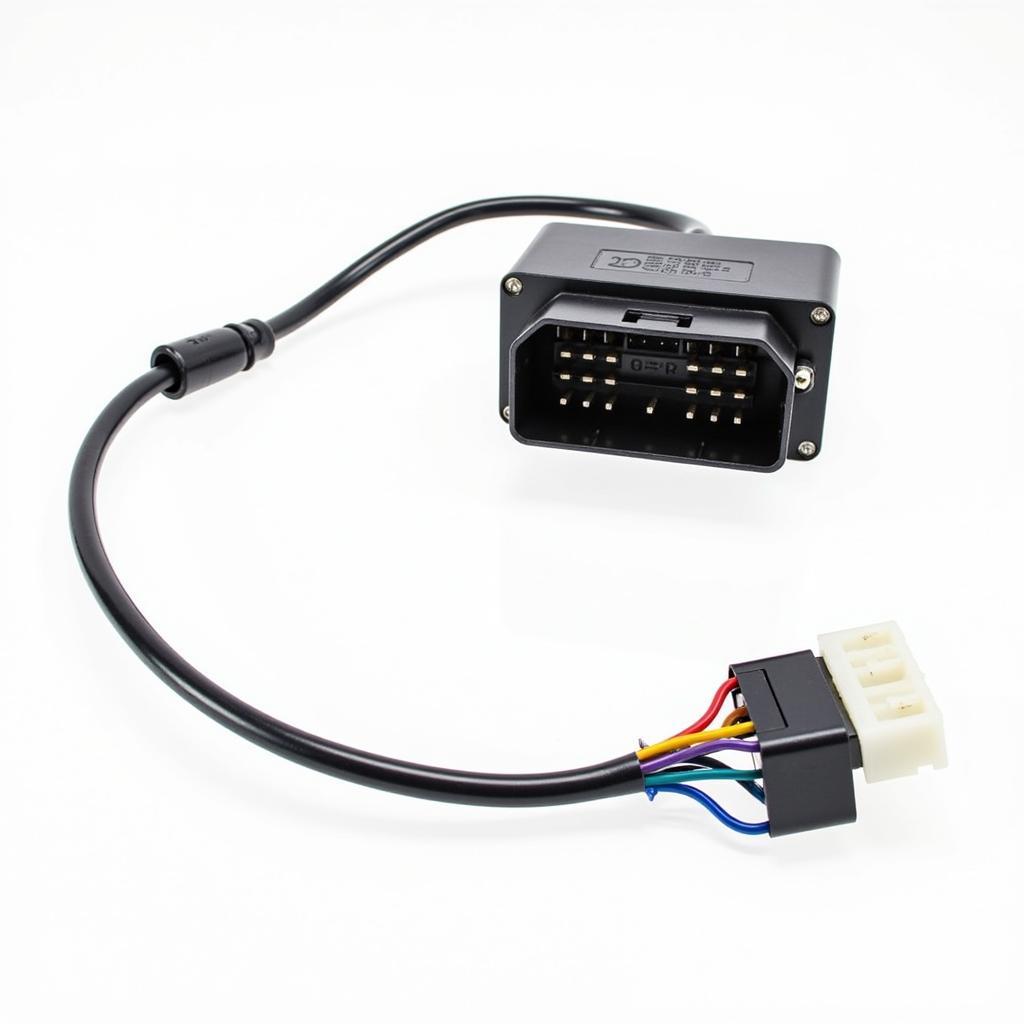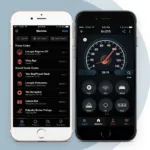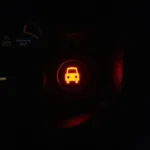Converting your OBD1 Toyota to OBD2 might seem daunting, but it’s a manageable process with the right knowledge and tools. This guide will walk you through the steps involved, explaining the why and how of each stage. Whether you’re facing emissions testing issues or simply want to utilize modern diagnostic equipment, understanding this conversion can be beneficial.
Why Convert Your OBD1 Toyota to OBD2?
Before delving into the conversion process, let’s understand the reasons behind it. The transition from OBD1 (On-Board Diagnostics 1) to OBD2 (On-Board Diagnostics 2) occurred in the mid-1990s to standardize automotive diagnostics and improve emission control systems.
OBD2 offers several advantages over its predecessor, including:
- Standardized diagnostic connector and codes: This simplifies troubleshooting and repair for mechanics.
- Enhanced emission monitoring: OBD2 systems monitor a wider range of components, leading to better emission control.
- Improved data access: OBD2 provides more comprehensive data, allowing for better understanding of your vehicle’s performance.
While OBD1 systems were adequate for their time, OBD2 brought significant advancements in vehicle diagnostics and emission control. Therefore, converting your OBD1 Toyota to OBD2 can be beneficial for various reasons, including passing emissions tests in regions where OBD2 is mandatory, gaining access to more advanced diagnostic tools, and potentially improving fuel efficiency.
Understanding the Conversion Process
Converting an OBD1 Toyota to OBD2 isn’t simply a matter of switching out connectors. It involves several key steps that vary in complexity depending on your vehicle’s specific model and year.
Here’s a general overview of the process:
-
Identify Your Toyota’s Model and Year: This is crucial for determining the specific components and procedures required for the conversion.
-
Gather the Necessary Parts: This typically includes an OBD2 ECU (Engine Control Unit), an OBD2 wiring harness, and various sensors compatible with the OBD2 system.
-
Replace the ECU and Wiring Harness: This is the most involved part of the conversion and may require professional assistance.
-
Install and Connect New Sensors: This ensures compatibility with the OBD2 system and accurate data readings.
-
Perform a System Check and Calibration: After the physical installation, it’s essential to ensure all components communicate correctly and the system is calibrated for optimal performance.
 OBD2 ECU and Wiring Harness
OBD2 ECU and Wiring Harness
Choosing the Right OBD2 Scanner for Your Toyota
Once you’ve converted your OBD1 Toyota to OBD2, you’ll need a compatible scanner to reap the benefits of the upgraded system. Choosing the right scanner can significantly enhance your diagnostic capabilities and provide valuable insights into your vehicle’s performance.
When selecting an OBD2 scanner, consider the following factors:
-
Compatibility: Ensure the scanner explicitly states compatibility with Toyota vehicles and the specific OBD2 protocols your model uses.
-
Features: Determine the features most important for your needs. Basic scanners offer code reading and clearing, while advanced options provide live data streaming, graphing, and more.
-
User-friendliness: Choose a scanner with an intuitive interface and clear instructions, especially if you’re new to OBD2 diagnostics.
-
Budget: OBD2 scanners range in price, so set a budget beforehand and explore options within that range.
best obd2 under 100 provides a comprehensive list of affordable and feature-rich OBD2 scanners that cater to various needs and budgets.
“Investing in a quality OBD2 scanner is essential after converting your OBD1 Toyota. It’s your window into the vehicle’s systems, allowing you to diagnose issues efficiently and make informed decisions about your car’s maintenance.” – John Miller, Senior Automotive Technician at Miller’s Auto Repair
Conclusion
Converting your OBD1 Toyota to OBD2 is an investment that can pay off in the long run. While the process might seem complex, breaking it down into manageable steps and understanding the reasons behind each stage can make it less daunting. Remember to consult with experienced mechanics for guidance and ensure all components are installed correctly for optimal performance.
By embracing this upgrade, you gain access to modern diagnostic tools, potentially improve your vehicle’s emission control and fuel efficiency, and ensure compliance with current regulations.
FAQs
1. Is converting my OBD1 Toyota to OBD2 mandatory?
The mandatory requirement for OBD2 depends on your region’s emission standards and regulations. Contact your local Department of Motor Vehicles or equivalent authority for specific information.
2. Can I perform the conversion myself?
While possible for experienced individuals, the conversion involves complex electrical work and requires specialized knowledge. Seeking professional assistance is recommended to avoid potential issues.
3. Will converting to OBD2 improve my Toyota’s performance?
While not a guaranteed performance booster, the conversion can indirectly enhance performance. A properly functioning OBD2 system helps optimize engine parameters and fuel delivery, potentially leading to slight improvements in horsepower, torque, or fuel efficiency.
4. What are the common problems after an OBD1 to OBD2 conversion?
Common issues include improper wiring connections, incompatible sensors, and incorrect ECU programming. Thoroughly checking all connections and ensuring component compatibility can minimize these problems.
5. What should I do if I experience issues after the conversion?
If you encounter any malfunctions or error codes after the conversion, it’s crucial to consult with a qualified mechanic specializing in OBD systems. They can diagnose the issue accurately and recommend appropriate solutions.
6. Can I revert back to OBD1 after the conversion?
While technically possible, reverting back is significantly more complex than the initial conversion. It’s not recommended unless absolutely necessary and should only be attempted by highly experienced professionals.
7. Where can I find reliable OBD2 scanners for Toyota vehicles?
camry obd2 offers a curated selection of OBD2 scanners specifically designed for Toyota Camry models, ensuring compatibility and optimal performance.
Need assistance with your OBD1 to OBD2 conversion or have questions regarding suitable OBD2 scanners? Reach out to our expert team via WhatsApp: +1(641)206-8880, Email: [email protected]. We’re available 24/7 to provide tailored solutions and address your concerns.
Looking for more in-depth information on OBD1 to OBD2 conversions for Toyota vehicles? Check out our detailed guide: obd1 to obd2 conversion toyota.

